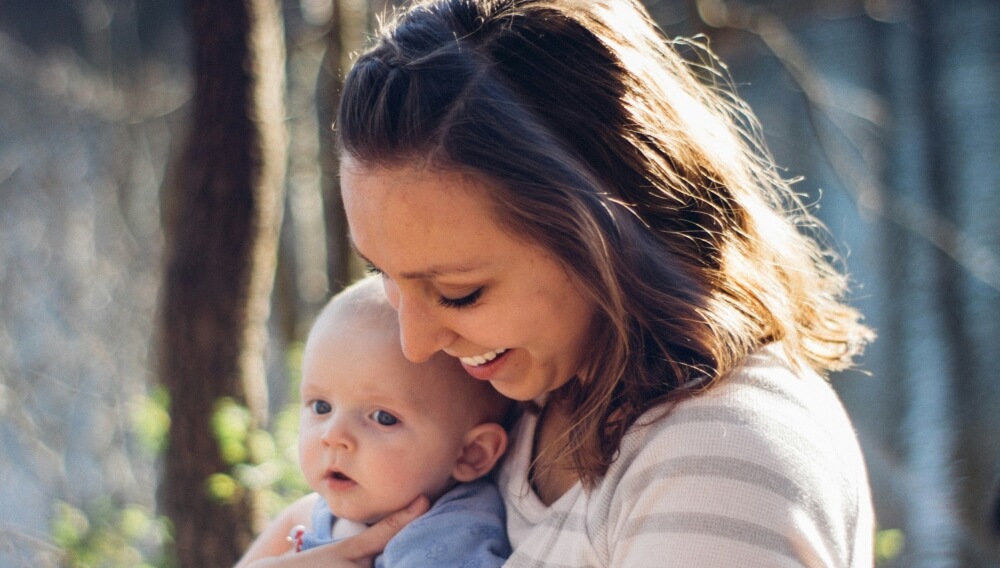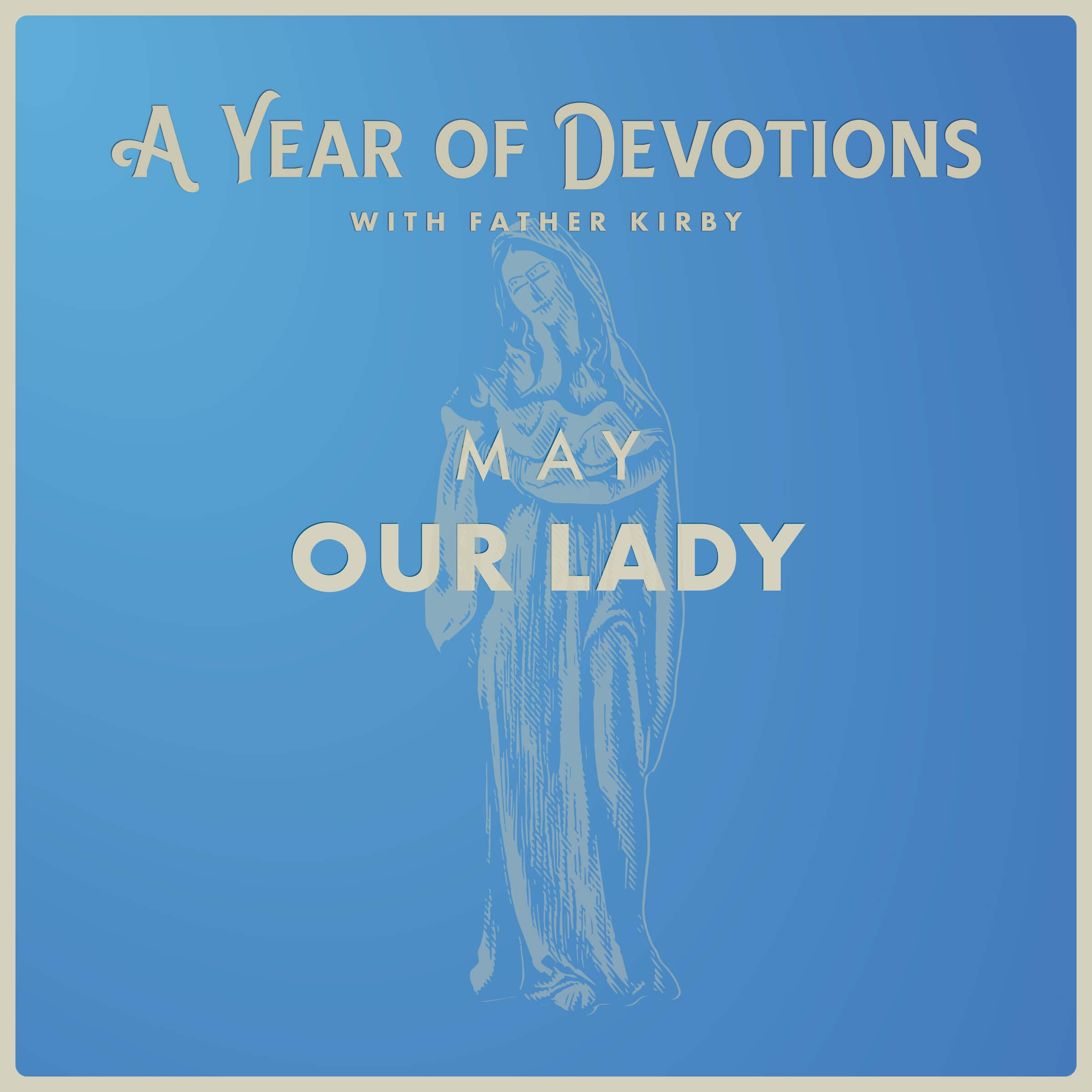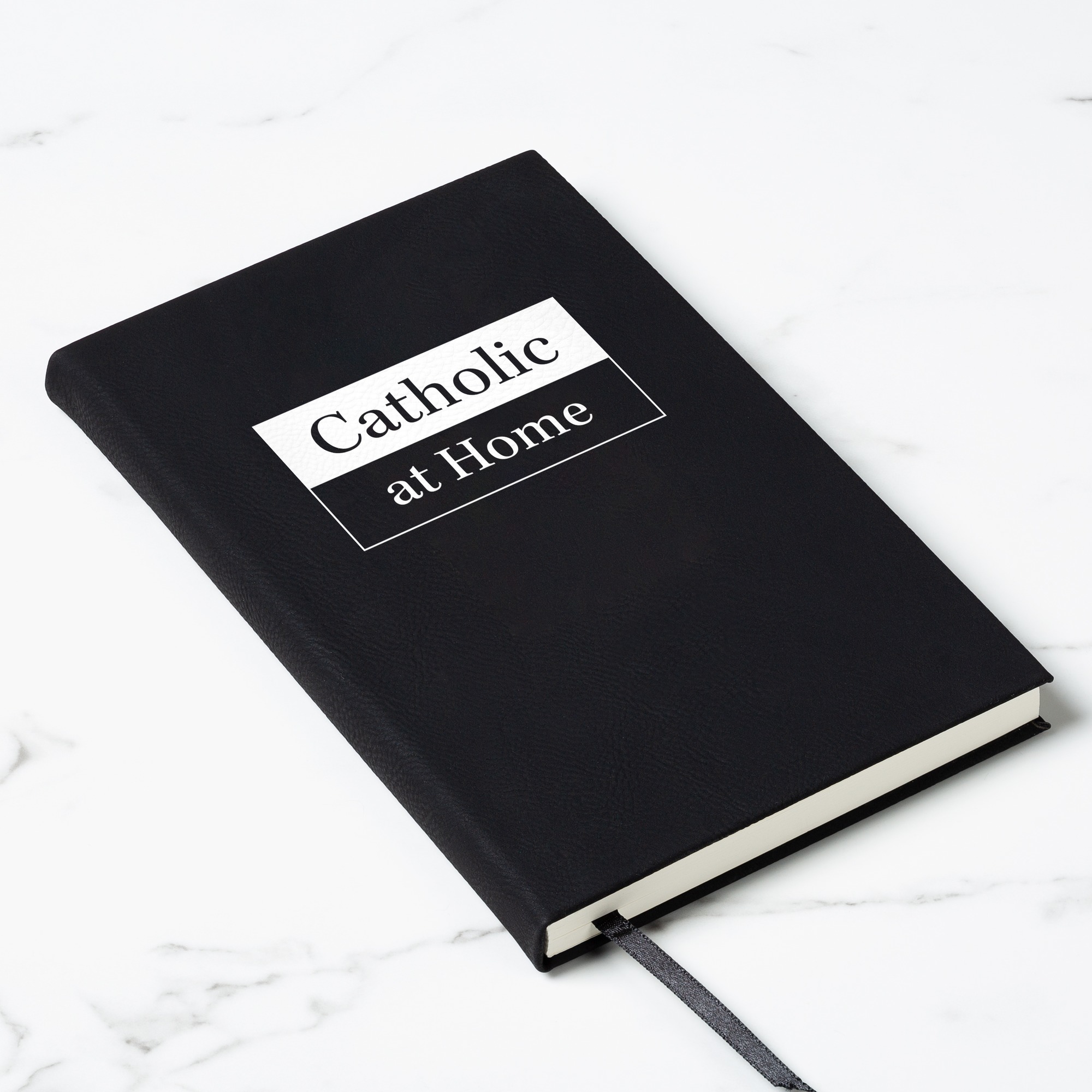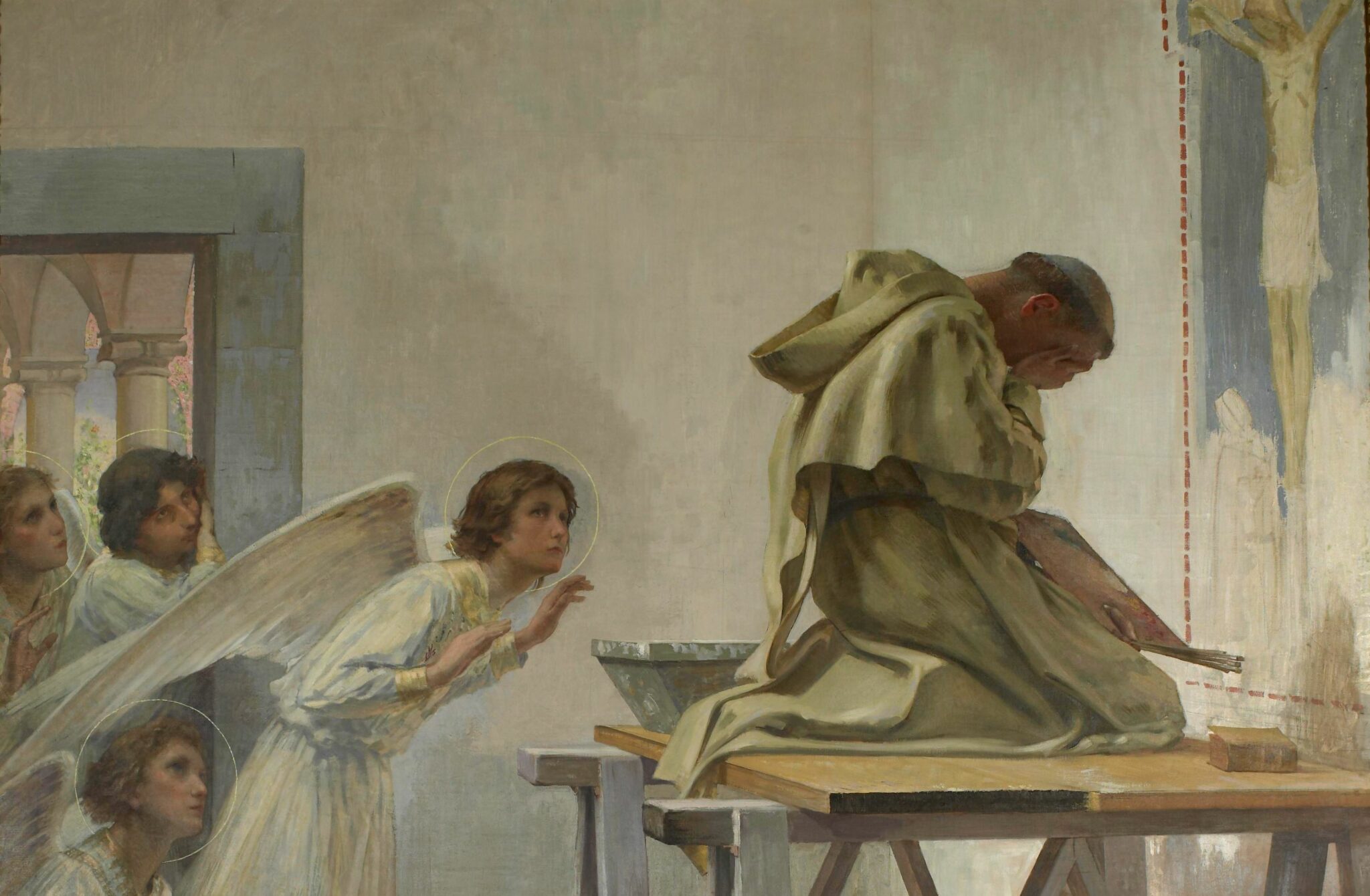
There were two things I dreaded about marriage: balancing a budget and birthing a baby.
Fortunately, this isn’t a personal finance blog, so I won’t bore you with the details of how I learned to win at budgeting.
But I will share my journey to motherhood. It came about as most things in God’s plan do: mysteriously and on His timeline.
I had never really desired motherhood, so the birth of my first baby blindsided me with an unexpected revelation.
What was this revelation, and how did I get there? Let me take you along on the journey with me.
The Feminine Genius, Motherhood, and Band of Brothers
It’s been pretty popular in the last few years to ask what a woman is. It’s been less popular to give a straightforward answer.
Between my junior and senior year of college, I started asking what made femininity so beautiful and such a gift to the world, all because I watched Band of Brothers with my dad and brothers.
I was really inspired by the heroic actions and leadership of these ordinary men who went from being mere 18-year-olds to the World War II heroes who saved civilization. They parachuted into pivotal battles that changed the course of history. They sacrificed all comfort to sleep in snowy foxholes in order to make an indefensible position unassailable. When reinforcements were denied, they kept going past the point of possibility and emerged victorious.

I wanted to live a life that heroic. But when you’re a woman, the odds of seeing active combat are generally pretty low. What did heroism on a grand scale look like for me?
I’m a cradle Catholic. I know the Church’s teachings on the dignity of marriage and motherhood, and I grew up in a home where my mom was the beating heart of our family. But here I was, asking what made me special as a woman. What unique strengths did I have? Were there any special abilities I had that my brothers didn’t?
The only answer I could come up with: birth a baby.
But that’s commonplace, messy, and not exactly as awe-inspiring as winning the Battle of Normandy.
Around this time, I picked up Ultimate Makeover: The Transforming Power of Motherhood by Carrie Gress, which framed motherhood in a way I had never thought of before.
Gress explained that the daily demands of motherhood are exactly the stuff that makes saints. It’s like sand that polishes and smooths all the rough edges away, until the stone is left glossy and shining. In a much less dramatic fashion than a 1940s army boot camp, it chips away and refines, forming a stronger and more saintly woman.
I’d still argue that a college student who wants to change the world doesn’t really want to hear that slicing up a banana for a highchair tray is going to help her do just that.

I mean, really, between the thrill of parachuting in to save the day or meal prepping for the 364th night this year to feed an impatiently screaming toddler, which would you choose?
But then again, which is the Corporal Work of Mercy?
I’ve come to realize that of all vocations, the fabric of marriage and motherhood is made up of opportunities to practice the Works of Mercy.
Yes, priests feed us with the Eucharist, and consecrated sisters sustain us with their prayers, but mothers (especially those of young children) pray for souls, comfort the afflicted, feed the hungry, clothe the naked, instruct the ignorant, give drink to the thirsty and more, all on a daily basis.
Living the Works of Mercy isn’t a “nice thing to do” as a mother; it’s a demand of everyday living. And even though it feels mundane and draining, the impact of faithfully providing for the daily needs of children is eternal.
After all, we all one day hope to hear the words:
“Come, you who are blessed by my Father. Inherit the kingdom prepared for you from the foundation of the world. For I was hungry and you gave me food, I was thirsty and you gave me drink.”
Matthew 25:34-35
The Privilege of Being A Woman
After college, I took a fast-paced job that I thought would satisfy my desire to do something heroic. I promptly discovered it wasn’t for me.
During that same time, I read The Privilege of Being a Woman by Alice von Hildebrand. I was hoping for something profound, or maybe empowering in the secular sense of the word, so I was a little disappointed when she spoke of motherhood as the crowning glory of womanhood.
Von Hildebrand unsympathetically informed me that:
Whereas few men are called upon to become priests, all women, without exception, are called upon to be mothers…Indeed, “maternity is God’s tenderness.” (pp. 95-6)
And also that:
“No one staring at that frightful female privilege, can quite believe in the equality of the sexes…” [wrote G.K. Chesterton]. During pregnancy, the mother-to-be actually carries two souls within herself: her own and the one of her baby. Chesterton must have had something similar in mind when he wrote, “Nothing can ever overcome that one enormous sex superiority…” (p. 87)
Hmmm, okay. But what about those of us who want more?
But more is so elusive. I suppose that I was really just searching for and grasping at something that would bring me joy and fulfillment. I just didn’t see how it was possible for more to come from an ordinary and commonplace vocation to marriage and motherhood.
Openness to Life, The Works of Mercy, and Eternity
As I discerned marriage, one of the best conversations I had with my fiancé was about how I didn’t really care to be a mom. As he helpfully (and correctly) pointed out, the Church doesn’t require married couples to try and produce as many babies as humanly possible.
Rather, Catholic marriage vows are about being open to life.
During the wedding ceremony, the priest asks, “Are you prepared to accept children lovingly from God and to bring them up according to the law of Christ and His Church?” and the bride and groom answer “I am” (emphasis mine).

Just like a human mother, the Church desires our good. She doesn’t place excessive demands on us that are too hard to fulfill. Rather, her teachings and sacraments are what they are so that we can experience the true happiness of living a life in union with God, in time and eternity.
Put in this light, being open to children seemed doable to me.
Suppose a baby would come along. If a friend arrived at my doorstep unannounced, would I open the door and welcome her in? Of course.

Like the hypothetical unexpected friends, we would welcome babies into our home when they showed up, making the most of it if they happened to interrupt our plans, delighting in their company, caring for their needs, and enjoying our time with them.
Obviously, babies are more expected in marriage than unexpected friends dropping by, so this analogy (like most) breaks down at a certain point. But it helped me realize that children are more than loud, needy, mess-making machines. They’re unique souls deserving of being cherished, loved, and provided for, and they play an irreplaceable role in family life by expanding our capacity to love.
So once again, those saint-building Works of Mercy come into play: “I was…a stranger and you welcomed me, naked and you clothed me…Amen, I say to you, whatever you did for one of these least brothers of mine, you did for me” (Matthew 25:35-36, 40).
Surprised by Joy…and Heroism
Fast forward three years. I was drained after 20 hours of unmedicated labor and exhausted after another 5 hours of pushing without an epidural, so there was no immediate rush of oxytocin when the baby landed on my chest.
I’d say the experience of birth was, as Pope St. John Paul II captures in his Letter to Women, truly “a unique experience of joy and travail.” (Although if you asked my husband, he’d probably place particular emphasis on the “travail” part.)
Yet in the days following the birth of my son, I realized I had never been happier in my entire life. There was no dramatic shift, but suddenly I found that my life was changed by the overwhelming love I had for this little human.
Yes, motherhood requires daily sacrifice. It’s repetitive and formative. But there’s so much more. There’s joy.
To my surprise, the joy tucked into the small moments, like the explosive giggles as my husband tosses our son into the air, vastly outweighs the monotony of changing another diaper.

Of course, it’s not all toddler-picked flowers and sunshine. There’s self-denial and suffering too. That’s because—whether your vocation is to be a soldier or a mother—it’s the little moments of each day that prepare you to be heroic in the big moments.
There are lots of little moments in motherhood—the time spent prepping meals or folding laundry—but they’re formative. That’s actually by design. It’s bootcamp for the soul.
The discipline of 1940s bootcamp produced the heroism in Easy Company that drove them to keep putting one foot in front of the other in impossible situations. One step at a time, they won the war.

Motherhood also has the power to produce heroism and perseverance in me.
The repetitive, ordinary Works of Mercy required over and over each day prepare the heart of every mother to one day receive the words: “Come, you who are blessed by my Father. Inherit the kingdom prepared for you from the foundation of the world” (Matthew 25:34).
I’d say that’s a victory worth striving for, especially when there’s so much joy waiting to be discovered along the way.
As I became a mother, the clues and hints the Church had given me all along about the dignity of a vocation to marriage and motherhood finally made sense. As Cardinal Joseph Mindszenty puts it, I’m building a cathedral, and there’s so much beauty to be lived along the way:
The most important person on Earth is a mother. She cannot claim the honor of having built Notre Dame Cathedral. She need not. She has built something more magnificent than any cathedral—a dwelling for an immortal soul, the tiny perfection of her baby’s body…The angels have not been blessed with such a grace. They cannot share in God’s creative miracle to bring new saints to Heaven. Only a human mother can. Mothers are closer to God the Creator than any other creature; God joins forces with mothers in performing this act of creation…What on God’s good earth is more glorious than this: to be a mother?
And it’s true.

My son’s blue eyes are more brilliant to me than all the cathedral windows in the world. His baby laugh inspires more joy than all the church bells of the world ringing out on Easter morning. And I have the honor of preparing his heart for God so that, on the day of his First Communion, it will become a living tabernacle for Our Lord, more precious to Him than all the gilded tabernacles of the world.
As the good cardinal says, it’s glorious. And full of joy and everyday heroism, too.







